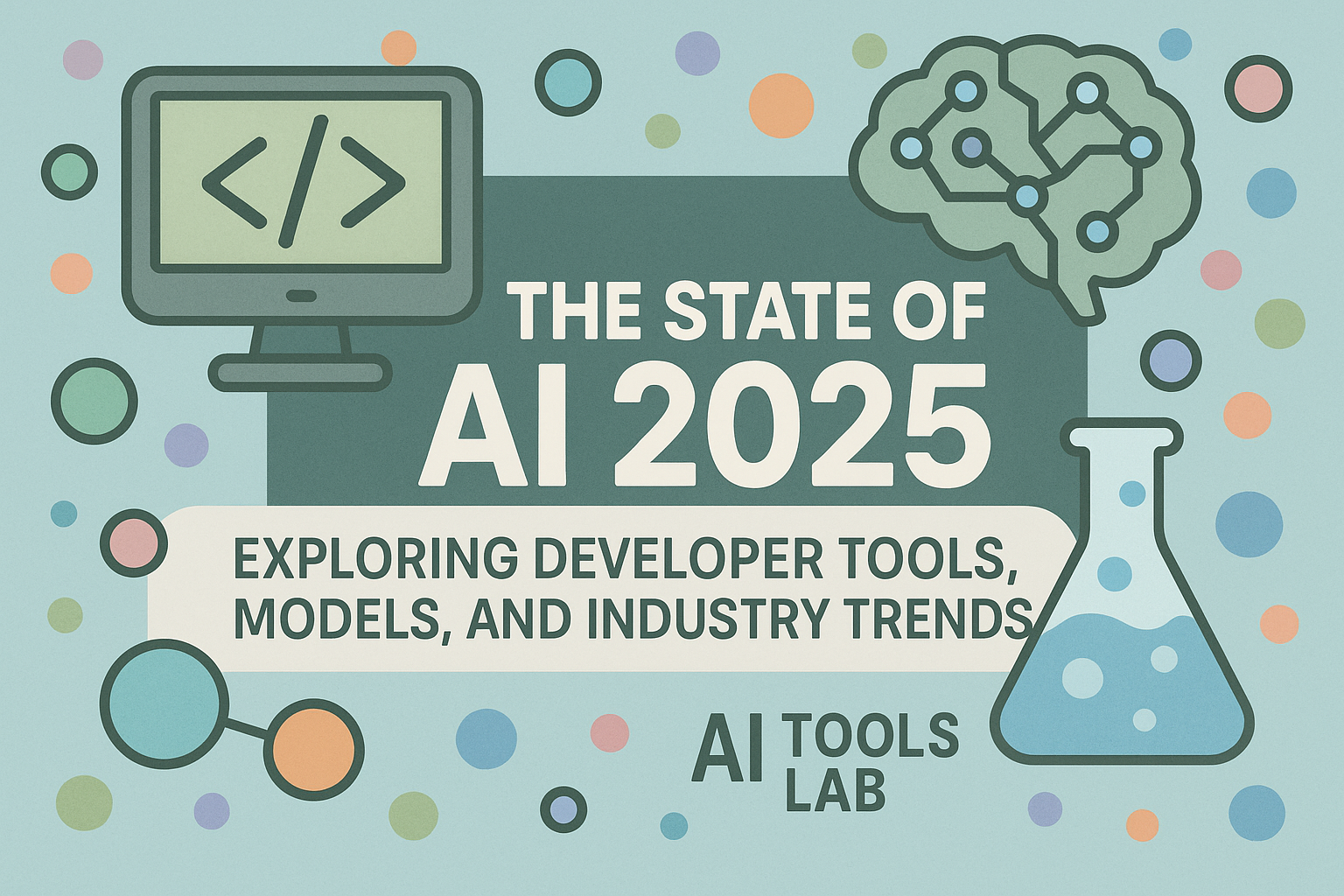
The State of AI 2025: Exploring Developer Tools, Models, and Industry Trends
What happens when 4,000 developers spill the tea on their AI tool usage? Jason and Ryan dive into the State of AI 2025 report, uncovering surprising truths about the tools actually winning hearts and minds. Spoiler alert: it's not just ChatGPT ruling the world—there's a whole underground ecosystem of AI tools most people have never heard of. But here's the plot twist that'll keep you up at night: while AI is making individual developers more productive, the DORA report suggests it might actually be making teams slower. Watch them dissect this paradox while discovering Google's Notebook LM, a tool that's quietly revolutionizing how we synthesize information from multiple sources. Sometimes the most important insights hide in the footnotes of progress.
In this engaging conversation, Jason Hand and Ryan MacLean dive into ‘The State of AI 2025’ report published by Msty.ai, analyzing the current landscape of AI tools, models, and developer preferences. They explore the comprehensive report which surveyed over 4,000 respondents, examining demographics, popular model providers, and developer pain points when using AI tools. The discussion highlights the dominance of tools like ChatGPT, Claude, and Microsoft Copilot, while also discovering lesser-known tools such as Phind, Qwen, Zed, and Void, which sparked curiosity about the rapidly expanding AI tooling ecosystem. Throughout their conversation, they reflect on how these tools have transformed their own workflows, particularly for code generation, summarization, and research purposes.
What makes this discussion particularly valuable is the candid assessment of both the strengths and limitations of current AI models. They discuss common pain points including hallucinations, context limitations, and code quality issues, while noting that many of these problems are being addressed as models continue to improve. The duo examines how AI is impacting development workflows at different scales, from individual developers to team-wide adoption, referencing the DORA report which suggests that generative AI might actually have negative impacts on software delivery at organizational levels despite individual productivity gains. The conversation concludes with an exploration of Google’s Notebook LM tool, which they demonstrate as a powerful resource for synthesizing information from multiple sources, highlighting the evolving landscape of AI tools designed to help knowledge workers manage and make sense of abundant information.
Jump To
Key Takeaways
- ChatGPT remains the dominant AI model with Claude gaining rapid popularity, but there's a wide ecosystem of AI tools that many developers are still discovering
- The biggest pain points for AI users remain hallucinations/inaccuracies and context limitations, though these issues are being addressed with newer model versions that offer expanded context windows
- Local model deployment is more common than expected (46% of respondents), likely driven by data privacy concerns rather than cost or performance considerations
- Despite concerns about AI-generated code quality, most developers (40%) report being happy with the current state of AI tools for web development, with only 10% being unhappy
- According to DORA research, while generative AI provides individual productivity gains, it may actually have negative impacts on software delivery at organizational levels, suggesting challenges in team integration
Resources
The State of AI 2025 Report by Msty.ai
Comprehensive survey results about AI tool usage discussed throughout the episode
DORA Report on Generative AI Impact
Research suggesting that generative AI may have negative impacts on software delivery at organizational levels
